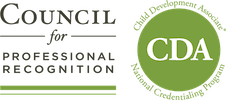Written by Valora Washington, Ph.D.
To facilitate interaction among ideas presented in Moving Beyond False Choices for Early Childhood Educators, Series Editor Stacie G. Goffin offers opening comments. For readers new to the Series, her introduction explains the series’ intent.
Valora Washington suggests that discussions and decisions regarding professionalizing ECE should be accompanied by a set of guiding principles and identifies two as priorities — respect for the ECE workforce and an intentional focus on equity. She also contends that if we’re honest with ourselves, we’ll recognize these two concepts as being “elephants in the room.”
Talk about “professionalizing” the early childhood education (ECE) field is today’s “hot topic,” and for good reason. More than ever, the field’s expanding knowledge base in child development and the science of early learning has expanded our views of what children are capable of doing and increased our focus on the capacity of staff who work with them.
For me, a critical question becomes: What principles will guide us as we envision a future and shared purpose for ECE as a field of practice? While there are no easy answers, and solutions seem costly, I see two core concepts as essential elements to change: respect for the workforce and intentional focus on equity issues.
Let me explain.
As CEO of the Council for Professional Recognition, I have the privilege of conferring nearly 50,000 Child Development Associate (CDA®) credentials every year. With many occasions to represent and support these educators, I am sad to say that I encounter too many instances where the field’s “thought leaders” deign to critique the infant, toddler, preschool, family-child-care and home-visitor communities that I serve with statements such as: “They” are holding “us” back from “our” efforts to raise the quality and value of “our” profession; “they” are poorly educated and have insufficient vocabularies; “they” are unacquainted with the field’s knowledge base and don’t help children achieve the results that “we” know are possible from research.
Yet the collective “we” often have virtually no teaching experience with young children and are comprised almost exclusively of monolingual, English-speaking white women with graduate degrees. “We” certainly earn more than the minimum hourly wages that “they” do. Yet “they” – without question – exhibit enormous courage and commitment to change through the higher education and reflective practices that are being demanded by the “professionalization” movement.
I offer this experience because it’s real – not to offend anyone. I’m pointing out the “elephant in the room” because, if we want, we can choose to respond differently. But we can’t change what we don’t face.
Expressing support for both professionalization and diversity is de rigueur in our field’s culture. Rationally, we all know that the field’s diversity is a strength and that workforce challenges are structural and systemic in nature, not endemic to the inherent characteristics of the staff. Nevertheless, in this era of leadership choices, it is still too easy to “blame” the victims of social inequities, perhaps to protect our own vulnerability, i.e., to preserve the belief that the world is a just place, we devalue the victims of injustice.
I hold deep esteem for the hard work and good intentions of colleagues who have created ECE’s current, dynamic environment. Nevertheless, the gap between our collective intentions and the realities of the current workforce is too big to ignore, despite our well of goodwill and the impact of innovative efforts such as T.E.A.C.H®.
A deficit approach to the people who do the incredible work of educating young children, it’s worth noting, is ironic given that the field’s strident approach to promoting a strengths-based paradigm about children and families often is not extended to educators. How can so little respect be rendered to individuals deeply immersed in demonstrating respect for the children and families they serve?
Often disrespect is an unintended or unreflective expression of asymmetrical power of one group to another – this happens to us as well as among us. Case in point: We celebrate the amazing power of early brain development yet tolerate widespread poverty and poor working conditions among those responsible for interacting with children in ways intended to foster early brain development.
And, speaking of elephants in the room, silence about race – and how professionalizing our field could impact the diversity of our workforce – is not productive to resolving ECE’s thorny knot. A focus on equity matters – and we must be intentional and dogged about achieving it. For decades, practitioners of color of all educational levels have reported concerns about inclusion and isolation. Within our field, there are demonstrated racial differences in wages and hiring preferences. Consequently, along with the field’s growth in recent years, concern is escalating that our expanding numbers adequately reflect the demographics of the children and families served, especially among “new” roles such as coaches, mentors, state specialists, and assessors.
The call for “representative leadership” is not whining – it is a deeply felt requirement for the field’s advancement. Our task forces, work groups, and committees cannot react with dismissal, annoyance, or gossip when people of color offer feedback that differs from the opinion of the mainstream. “Whitening the field” – as has happened in other education sectors – should never be an option for us, especially given that ECE can take pride in having a more diverse group of educators than many other education sectors, including public schools.
Bringing forth our vision for a respected and equitable profession will require us to engage in democratic processes that respect and build on the strengths of the field’s early childhood educator workforce. And democratic processes demand that the voices of early childhood educators – those people who actually work with children every day – be heard.
To paraphrase Benjamin Franklin: “Well done is better than well said.” Great advice for ECE!
